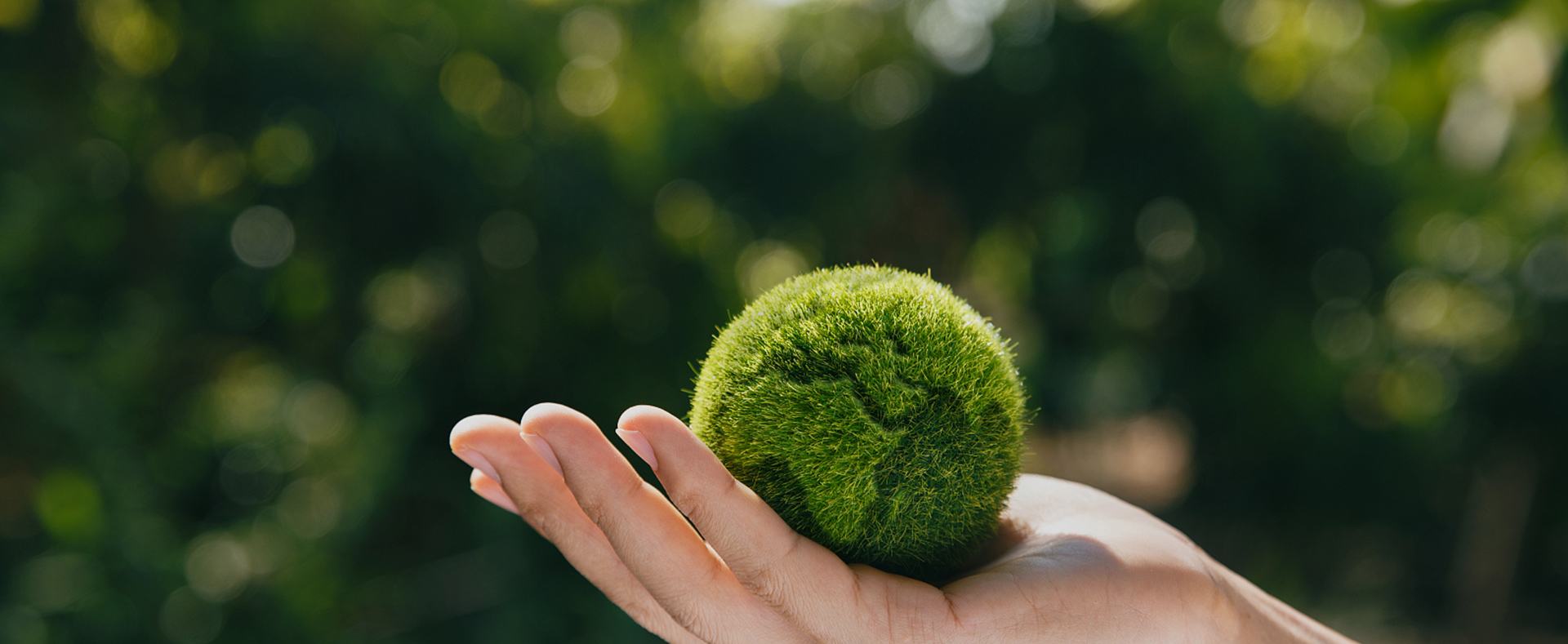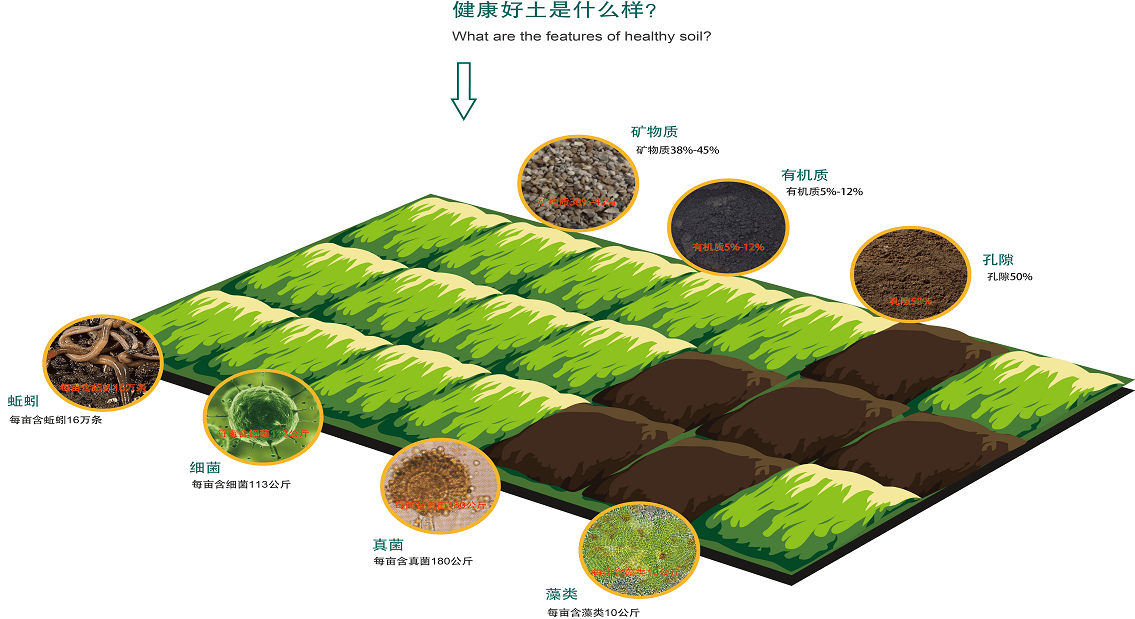

Industry change
Recycle organic waste
Efficient directional humification,
maximum fixed carbon and nitrogen
healthy soil to make the water clearer,
the sky more blue, food safer!
Control pollution from non-point
agricultural sources at the source
improve soil organic matter content
Passivating heavy metals in soil
educe fertilizer use
reduce nitrogen and phosphorus loss in farmland
All things are born in the soil, and where there is soil, there is food. Soil is the most precious agricultural resources and important factors of production, and soil organic matter profoundly affects the physical, chemical and biological properties of soil, and is an important index of soil health, directly affecting farmland, ecology, plant health, and indirectly affecting the health of animals and humans. Only healthy soil can produce healthy ecological ingredients.
International healthy soil organic matter content is 5%, developed countries in Europe and America soil organic matter content reaches 5% ~ 7%, but at present, two-thirds of our soil, the organic matter content is less than 1%!
Improving soil organic matter in cultivated land is a complex systematic project with large investment and slow effect. Since its establishment, BGB has been determined to gradually improve soil organic matter content in cultivated land in China through innovative products and differentiated services, actively promote the protection and improvement of cultivated land quality, and improve the comprehensive production capacity of cultivated land in China.

The food from the fields and pastures is transported to the city for people's consumption, which is the process of carbon resources from the field head to the table. According to the law of the natural cycle, these carbon resources should be returned to the soil, so as to keep the whole ecosystem in good operation. In the past, when the economy was underdeveloped, people used a large amount of organic manure to return to the field to achieve this balance. However, with the process of urbanization, the development of intensive planting and breeding industry, and the lack of "carbon" feeding from the table to the field, the carbon cycle between rural and urban has been broken, and the traditional way can no longer keep up with the rhythm of the cycle. When carbon doesn't return to the soil in time, it causes air and water pollution, and our soil gets poorer and poorer, leading to a vicious cycle.



BGB uses an industrial thought to serve both the environmental industry and the agricultural industry.
In order to enter the agricultural commodity system, the products of waste resource utilization must accept more strict evaluation standards and evaluation system than the traditional fertilizer products.
At the beginning of the consideration of recycling waste, BGB determined that the resource products into the agricultural system should meet the agricultural standards, so they worked with the agricultural department to develop product standards, and through technical research and development, to ensure the stability of the products.
In the process of continuously increasing grain production, we need a large amount of fertilizer, nitrogen, phosphorus and potassium. However, in this process, there is a carbon cycle, and we turn these organic waste resources into a highly efficient industrial carbon fertilizer resource, and nitrogen, phosphorus, potassium and carbon all elements to supplement the soil, so that our agriculture can form a sustainable farming mode, which is a feature of China.
There are 3 billion tons of livestock and poultry manure and more than 700 million tons of crop straw in China. 40-60% of urban household waste is organic waste every year. In addition, there are a large number of organic wastes produced by food processing enterprises, which are renewable "carbon" sources throughout urban and rural areas. That's what we're looking at in the future.
Telephone consultation
+8610-82899065/66
Follow us on WeChat

Back to top